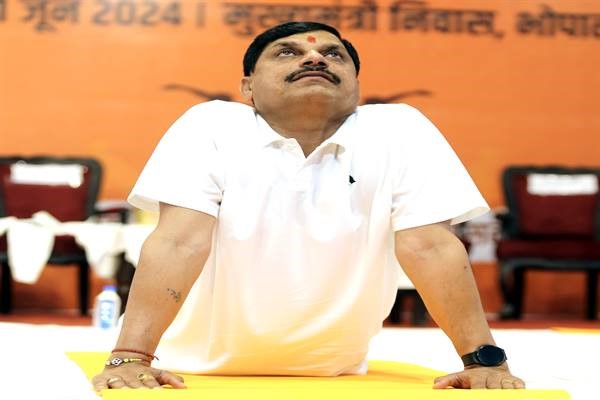– Pervez Bari
Bhopal, June 24: In a significant policy shift, Madhya Pradesh Chief Minister Dr. Mohan Yadav has announced the integration of teachings about Ram and Krishna into the school and higher education curriculum across the state. The announcement was made during a state-level Yoga Day celebration held here, reflecting an effort to infuse the Hindu cultural heritage and spiritual values into the educational framework in the plural society.
Dr. Yadav explained that a committee of experts would be established to develop the new curriculum, which is expected to be implemented in the next academic year. He emphasized the importance of these teachings in preserving and promoting the cultural and spiritual heritage of India. The state government has also launched projects focused on mapping the travels of Ram and Krishna within Madhya Pradesh, with the goal of transforming these routes into major pilgrimage centers.
“Our initiative aims to enrich the education of young minds with the timeless values and teachings of Lord Ram and Lord Krishna, which are integral to our cultural fabric,” Dr. Yadav stated while addressing the media post-event.
The announcement has sparked a lively debate about the role of religious education in a plural society. Former Chief Minister Digvijay Singh of the Congress party responded by supporting the inclusion of teachings about Ram and Krishna. However, he also called for a more inclusive approach that would incorporate the teachings of religious leaders from other faith leaders, such as Guru Nanak, Jesus Christ, and Prophet Muhammad ﷺ.
“While the ideals of Lord Ram and Krishna are indeed valuable, our education system should also impart knowledge about the spiritual teachings of other religions to foster a truly inclusive and diverse society,” Singh remarked. “Education should reflect the pluralistic nature of our society, ensuring that students from all religious backgrounds feel respected and represented.”
This initiative has raised important questions about the balance between cultural heritage and pluralism in India. The Constitution, amended in 1976 to emphasize India’s secular character, mandates that the government should neither favor nor discriminate against any religion. However, the Supreme Court’s 1994 ruling in S.R. Bommai v. Union of India affirmed that India has been a secular state since its inception, requiring careful consideration in policy-making to uphold these principles.
The proposal to include religious teachings in the curriculum is seen by some as a way to enrich students’ understanding of India’s diverse cultural heritage. Others, however, express concerns about maintaining the plural ethos in public education. This ongoing debate highlights the complexities of integrating religious content into educational curricula while ensuring equality and respect for all faiths.
As Madhya Pradesh moves forward with this initiative, stakeholders from various communities and educational backgrounds continue to engage in discussions to shape a curriculum that respects India’s rich cultural diversity while adhering to its secular values.




